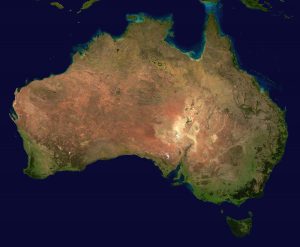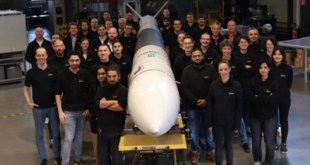
The Australian Space Agency and its French counterpart, the Centre national d’études spatiales (CNES), have entered into a Memorandum of Understanding (MoU) that commits both countries work together to develop their respective space programmes and take full advantage of the rapidly expanding global space industry.
The Australian Minister for Industry, Science, and Technology, Karen Andrews, welcomed the agreement signed late last week by the head of the Australian Space Agency, Dr. Megan Clark AC, and CNES President, Dr. Jean-Yves Le Gall, who is touring the Asia-Pacific region.
The agreement commits both countries to mutually develop their space capabilities, particularly in the areas of space operations, space science, Earth observation, positioning, navigation, and timing (PNT) systems, and satellite communications.
“This strategic association between these Australian and French governments’ agencies will help our nations’ universities, research institutions, businesses and communities work together across a range of fields,” Andrews said.
“It builds on an existing track record of cooperation between CNES and Australia, and allows both countries to embark on an ambitious partnership,” she added.
Franco-Australian space cooperation is already underway under the auspices of an agreement signed in May 2018 prior to the establishment of the Australian Space Agency, with CNES partnering with UNSW Canberra Space for the development of the Australian National Concurrent Design Facility (ANCDF) to build world-class space missions, and to study satellite technologies with advanced sensors and on-board processing and artificial intelligence.
The ANCDF fast-tracks Australia’s ability to deliver cutting-edge technology, support future joint space missions, and boosts economic growth and job creation in Australia.
Australian Space Agency head Megan Clark said that the signing of the agreement with CNES symbolises the start of the Australia’s cooperation with fellow spacefaring nations.
“Civil space engagement initiatives like this with the French space agency will explore advanced space technology and applications used in earth observation and remote sensing with high-altitude balloons and satellites, space operations and joint missions,” Clark said.
CNES president Jean-Yves Le Gall also welcomed the agreement.
“Today CNES proudly becomes the Australian Space Agency’s very first international partner. Australia’s amazing ramp-up shows the now crucial importance of space for our economies. The joint projects coming out of today’s agreement will ultimately bring growth and jobs both in Australia and in France,” he said.





